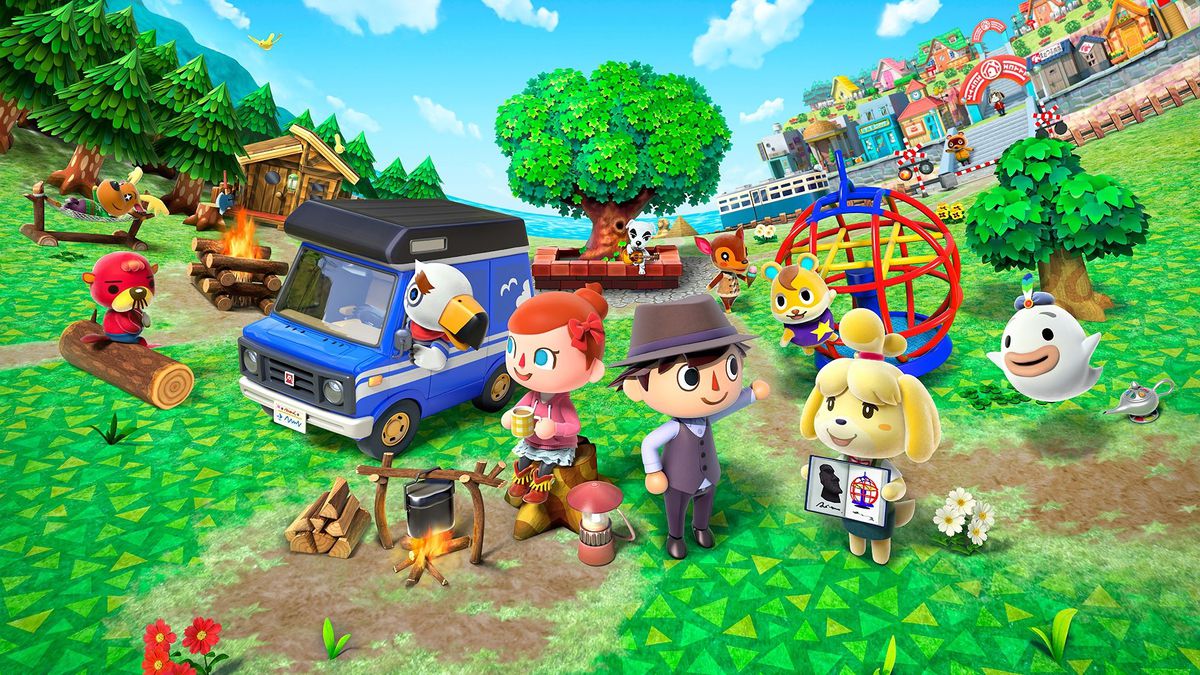Routines and taking it slow – Immersing myself in the world of Animal Crossing
I’ve played video games for as long as I can remember. There was a Nintendo 64 in my home before I was even born and my brother and I exhausted every home and handheld console we had.
There’s something that a lot of video games do well, and it’s (to me) the most important thing they could do: they immerse you. They bring you into their world, away from your own, and your suspension of disbelief can be so strong you become the characters you play in ways other media doesn’t achieve. They can, in most forms, let you take action in the story instead of being a passive participant. What you do in a game is your own accomplishment.
I mostly enjoy games where I don’t stress out too much. If I can take my time to think through and plan how I want to spend my time, energy, and resources, I’m likely to have a good time.
We hear all the time about the negative effects of video games, particularly from those who don’t play them, but in my experience we rarely hear about their more positive benefits. Admittedly, I doubt most of the games I play do anything extraordinary for me in my day to day life, although arguably being a hobby and a source of joy is pretty good in and of itself.
The Animal Crossing Series is different.
My first Animal Crossing game is probably most people’s first: Animal Crossing New Leaf. It’s been a while since I’ve played it. (Admittedly, I’ve lost my copy and I’ve been stubbornly trying not to buy a new one). I did, however, buy it when it was released in 2013 and played it most days for about 3 years straight. Alone or with friends, I made sure to find time to play this game.
Animal Crossing is a game that runs in real time. Whatever time it is in the real world when you play is the in-game time as well. You go around talking to villagers, collecting things (fish, insects, etc.), and slowly upgrading your village’s amenities as its mayor. It’s a game that encourages you to take things slow; it even “punishes” you for running (see: literally going fast!) and wears down the grass below your feet (which is ugly and we only want pretty villages). Take your time, walk from place to place, and slowly build up your various collections and friendships. Most people will play daily to maximize what they can do and how quickly they reach milestones and unlock amenities, but playing daily also keeps your village in good shape and prevents villagers from moving out.
Playing daily really helped me out in my regular, real-world daily life. At a time of my life that was hectic, filled with deadlines and extracurriculars and things to do, it really helped to have a space in a different world where everything was fine. There were few serious consequences if I couldn’t play every day, so there was never any reason to avoid the game out of fear.
Because of the game’s ties to 24-hour days, it also helped me establish routines where I otherwise couldn’t. Anyone with a mood disorder can tell you how vital this is in recovery; routines are often the reason we get anything done. Having something to do at a certain time every morning that involved accomplishing tasks was great for helping me get out of bed every day to do other real-world tasks as well.
It’s been a long time since I’ve played Animal Crossing. Now that I’m in the thick of my final classes in university, I really miss it. I got a Nintendo Switch recently, and the new installment for Animal Crossing (New Horizons) is all I can think about even as I play other great games. In the new year, it’ll be nice to revisit friends from the previous games and make new memories. If I reinforce some good habits along the way, then that’ll be nice too.
